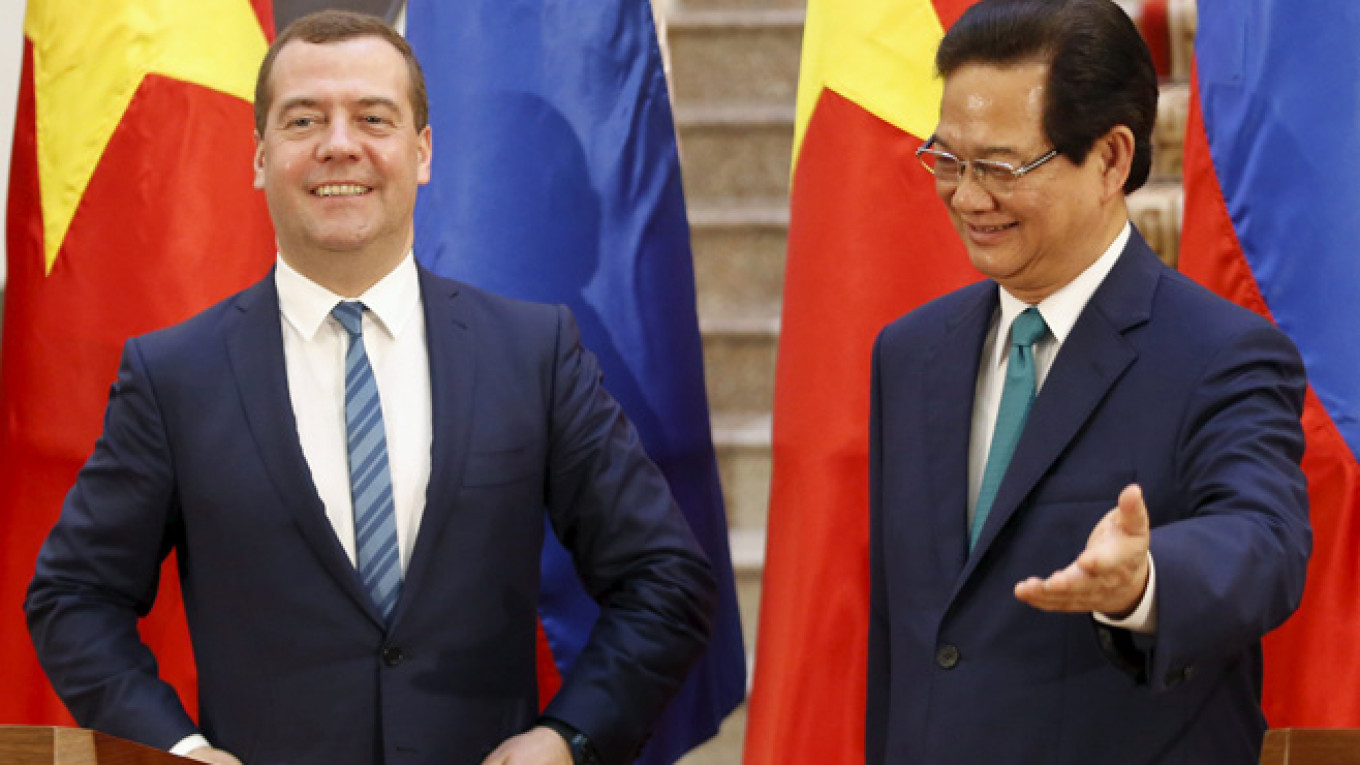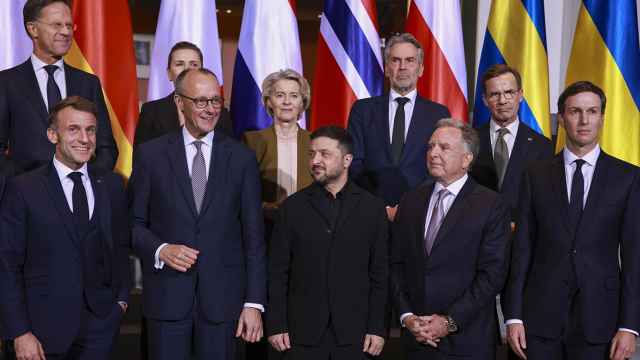HANOI, Vietnam — Russia's Prime Minister Dmitry Medvedev said Monday that Vietnam is close to agreeing a free trade deal with the Russian-led Eurasian Economic Union.
He predicted that Russia's annual trade with Vietnam could increase fourfold to $10 billion over the next five years. The two sides also agreed to expand oil and gas exploration in the contested South China Sea.
Medvedev is on a two-day official visit to Communist Party-ruled Vietnam and held talks with his Vietnamese counterpart Nguyen Tan Dung.
Wary of the growing influence of giant northern neighbor China, the Vietnamese government has sought to strengthen commercial and military ties with world powers including its former enemy the United States and Japan. Vietnam and other Southeast Asian nations are embroiled in disputes with Beijing over its expansive claim to the South China Sea.
Medvedev said a trade agreement between Vietnam and the EEU, an economic community which also includes Belarus and Kazakhstan, would help bolster economic ties.
"We have agreed on most contents of the agreement," Medvedev said through a translator during a press briefing. "I think this is the factor that would promote bilateral trade."
Dung said he hoped the trade pact would be signed in the first half of this year.
Two-way trade between Vietnam and Russia was $2.5 billion last year.
The two leaders witnessed the signing of several energy cooperation agreements including Russia's Gazprom Neft's intention to buy 49 percent of a 6.5 million-ton oil refinery in central Vietnam which is operational.
Dung said the two leaders agreed on the expansion of cooperation in oil and gas projects in Vietnam's exclusive economic zone and continental shelf in the East Sea, which is the Vietnamese term for the South China Sea.
A Message from The Moscow Times:
Dear readers,
We are facing unprecedented challenges. Russia's Prosecutor General's Office has designated The Moscow Times as an "undesirable" organization, criminalizing our work and putting our staff at risk of prosecution. This follows our earlier unjust labeling as a "foreign agent."
These actions are direct attempts to silence independent journalism in Russia. The authorities claim our work "discredits the decisions of the Russian leadership." We see things differently: we strive to provide accurate, unbiased reporting on Russia.
We, the journalists of The Moscow Times, refuse to be silenced. But to continue our work, we need your help.
Your support, no matter how small, makes a world of difference. If you can, please support us monthly starting from just $2. It's quick to set up, and every contribution makes a significant impact.
By supporting The Moscow Times, you're defending open, independent journalism in the face of repression. Thank you for standing with us.
Remind me later.






